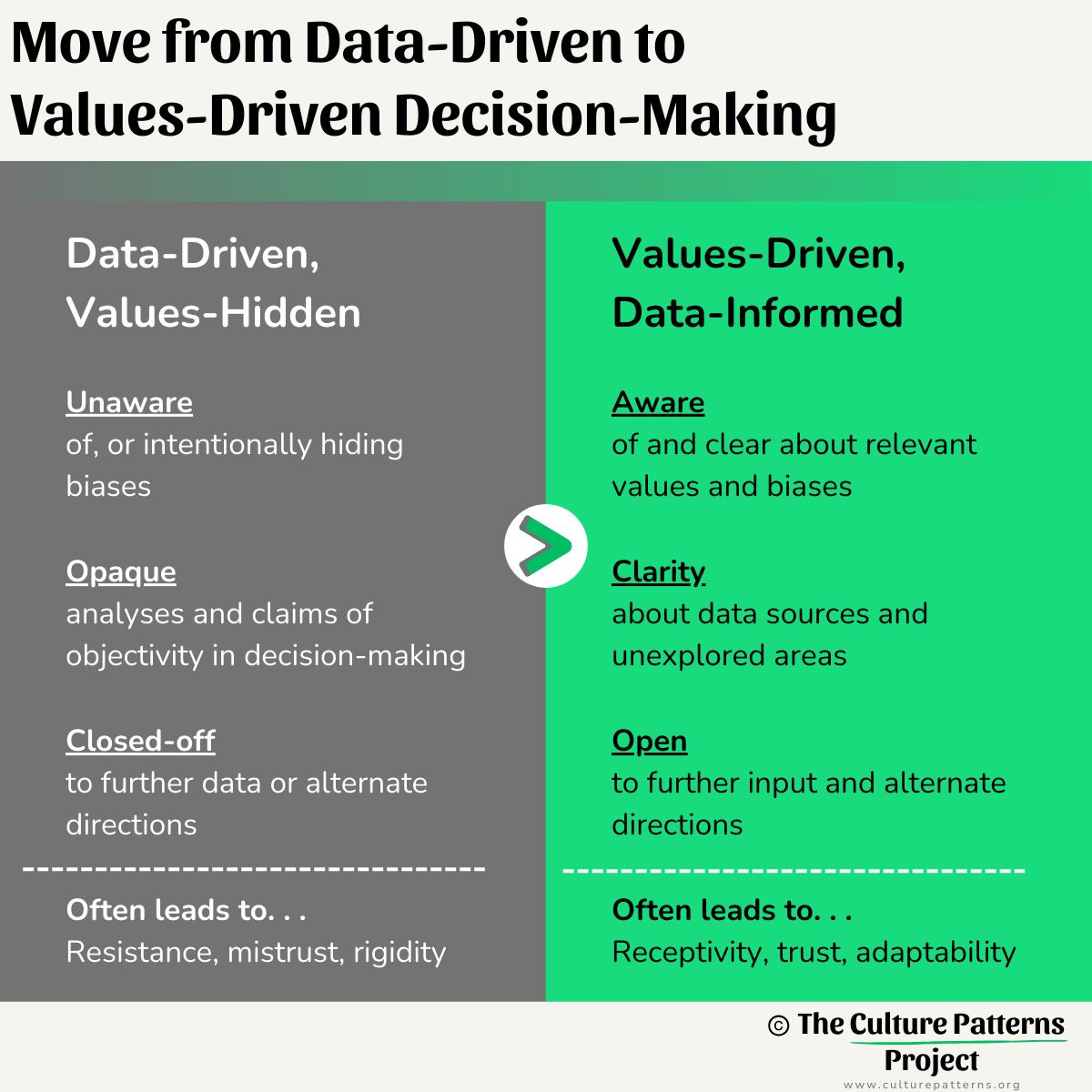
How To Build Psychological Safety Through Uncertain Times
Trust can take myriad forms. We can trust that someone will do as they say. We can trust the advice they give. But for those doing challenging, long-term work, what may matter most is trust that honest feedback, whether positive or negative, won’t harm the relationship. That trust is the essence of psychological safety.

The Myth that “More Data is Always Better”
Purpose-Driven data cultures prioritize the experiences of people, understanding that doing so requires a balance of qualitative and quantitative data, while acknowledging the investment needed for good data.

The Myth of Data-Driven Objectivity
Decisions driven by data are not inherently better. They inherit the biases of the data that drive them and the ones making decisions.

The Myth of Bias-Free Data
Diversity in data methods is usually good practice. All things being equal, it will get us more representative data. But all things are never equal.

A Systems Thinking Perspective on Measuring Organizational Culture
What might it look like to be truly aware of the interconnectedness of organizational culture, and the responsibility organizations have to both their people and the broader culture? That answer will be different for every organization.

Shifting the Burnout System
Burnout is complex. How you prevent and address burnout will vary by workplace. But for values-driven organizations, what is especially important is to validate the reality of what your people are seeing and feeling. What does that mean, and how do you do it?

How to Build Intentional Surveys That Meet the Moment
Take it from someone who has built some pretty good, and yes, pretty bad, surveys: Building a good survey takes work. But when done right, a good survey can serve as the bridge between where you are and where you need to be.
